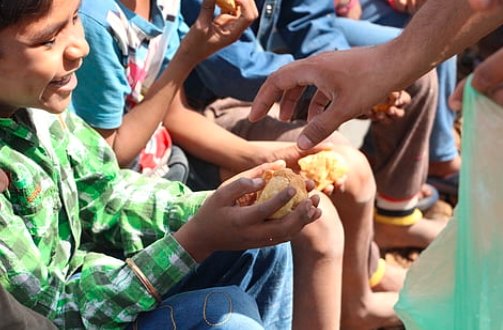Mesa County, Colorado, has been awarded a federal grant of nearly $60,000 to enhance its emergency food and shelter programs. The grant comes from the Department of Homeland Security’s Federal Emergency Management Agency (FEMA) and is administered by the United Way of Mesa County.
How the grant will be used
The grant will be used to supplement and expand the existing emergency food and shelter services in Mesa County, which include:
- Providing meals, groceries, and food vouchers to individuals and families in need
- Offering temporary shelter, rent, mortgage, and utility assistance to prevent homelessness
- Supporting transitional housing, rapid rehousing, and permanent supportive housing programs for homeless individuals and families
- Delivering other essential services such as transportation, clothing, hygiene items, and case management
The grant will also help the county respond to the increased demand for emergency food and shelter services due to the COVID-19 pandemic and its economic impact.
How the grant was awarded
The grant was awarded through a national board that consists of representatives from FEMA, the American Red Cross, Catholic Charities USA, The Jewish Federations of North America, The Salvation Army, and United Way Worldwide. The national board allocates funds to each state and territory based on population, poverty, unemployment, and homelessness data.

The state of Colorado received a total of $2,789,000 from the national board for the fiscal year 2023. Mesa County was one of the 31 counties in Colorado that qualified for the grant based on its local needs and priorities. The amount of the grant for Mesa County was $59,973, which is slightly higher than the previous year’s allocation of $58,973.
How the grant will be distributed
The grant will be distributed to local nonprofit and government agencies that provide emergency food and shelter services in Mesa County. The distribution process will be overseen by a local board that consists of representatives from the United Way of Mesa County, the Mesa County Department of Human Services, the Grand Junction Housing Authority, the Grand Valley Catholic Outreach, the HomewardBound of the Grand Valley, the Western Slope Center for Children, and other community stakeholders.
The local board will review and evaluate the applications from the eligible agencies and determine how the funds will be allocated based on the following criteria:
- The agency’s ability to provide emergency food and shelter services
- The agency’s compliance with federal, state, and local laws and regulations
- The agency’s coordination and collaboration with other service providers
- The agency’s accountability and transparency in reporting and monitoring the use of funds
The local board will announce the grant recipients and the amount of funds awarded to each agency by the end of February 2024.
How the grant will benefit the community
The grant will benefit the community by providing vital assistance to the most vulnerable and at-risk populations in Mesa County, such as low-income families, seniors, veterans, people with disabilities, and people experiencing homelessness. The grant will also help the community address the root causes of hunger and homelessness, such as lack of affordable housing, unemployment, underemployment, health issues, mental illness, substance abuse, domestic violence, and trauma.
The grant will also support the community’s efforts to achieve the goals of the Mesa County Homelessness Action Plan, which was developed in 2020 by a coalition of local agencies, organizations, and individuals. The plan aims to:
- Prevent and reduce homelessness in Mesa County
- Increase access to safe, decent, and affordable housing for all
- Enhance the quality and effectiveness of emergency food and shelter services
- Promote collaboration and coordination among service providers and stakeholders
- Increase public awareness and engagement on the issue of homelessness
The grant will also contribute to the community’s resilience and recovery from the COVID-19 pandemic and its social and economic consequences.














